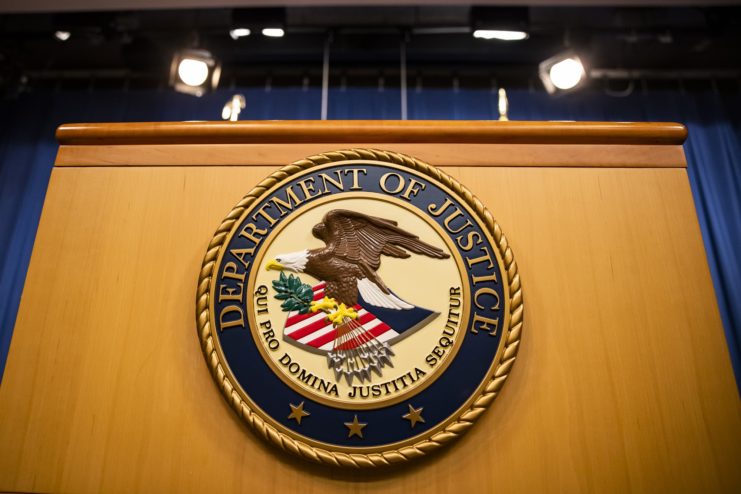A husband and wife were arrested on Saturday after sending top secret information about US nuclear submarines to what they believed to be a representative of a foreign government. This representative was actually an undercover FBI agent, who’d been building up a case against the man. The pair have been charged in a criminal complaint alleging violations of the Atomic Energy Act.
The charges have been brought against Jonathan Toebbe, 42, and his wife, Diana Toebbe, 45, who assisted him with passing on the secret information. The Department of Justice said Jonathan sold secrets over the past year to whom he thought was a foreign country. Which country they were attempting to sell the secrets to has not been disclosed.
The arrest took place on Saturday in West Virginia, after both Jonathan and Diana arrived at a “dead drop” site to deliver secret information.
Attorney General Merrick B. Garland said, “The work of the FBI, Department of Justice prosecutors, the Naval Criminal Investigative Service and the Department of Energy was critical in thwarting the plot charged in the complaint and taking this first step in bringing the perpetrators to justice.”
The FBI said that Jonathan’s secret-selling activities started in April 2020. According to the Department of Justice, he has worked for the US since 2012 and as a Navy nuclear engineer, had top security clearance. Jonathan was assigned to Naval Nuclear Propulsion Program, where he had access to classified and sensitive information on the designs and systems of nuclear-powered warships.
His operation began when he informed a foreign government that he wanted to sell the secret information.
He sent sensitive Navy documents with a note saying “I apologize for this poor translation into your language. Please forward this letter to your military intelligence agency. I believe this information will be of great value to your nation. This is not a hoax.”
The package arrived in the foreign country but ended up in the hands of the FBI. The parcel’s return address was in Pittsburgh, Pennsylvania, giving the FBI a lead to find the informant. An agent assumed the role of a foreign representative interested in paying Jonathan for the information. After this, Jonathan communicated with the FBI agent via encrypted email.
The agency sent Jonathan $10,000 in cryptocurrency as a “good faith” payment to establish the relationship, before planning a dead drop site in West Virginia for Jonathan to deliver the information. A week after he received the cryptocurrency, Jonathan and his wife arrived at the drop site and handed over sensitive information. They were not aware that the FBI was watching the entire operation. They noted that Diana appeared to be acting as a lookout for the drop.
They were paid $20,000 for this drop.

Once the pair departed the FBI collected the information, which was contained on a blue SD card. The SD card was wrapped in plastic and hidden inside a peanut butter sandwich. It was later analyzed by a Navy expert and was found to contain restricted data about the design and performance of the nuclear reactors used in Virginia-class submarines.
This is particularly concerning as the Virginia-class is the US’ latest class of submarines, most of which have not even been constructed yet. These fast attack submarines contain vast amounts of classified systems and technologies.
Jonathan also left a message on the memory card, part of which said: “I hope your experts are very happy with the sample provided and I understand the importance of a small exchange to grow our trust.”
The undercover operation prompted Jonathan to make more drops since then, receiving $70,000 for one in August.
According to the Justice Department, Jonathan had been paid a total of $100,000 in cryptocurrency over the course of the operation.
The two were finally arrested on Saturday while dropping off another memory card of information. They are currently charged with violating the Atomic Energy Act, conspiracy, and “communication of restricted data,” and are scheduled to appear in a West Virginia federal court tomorrow.
